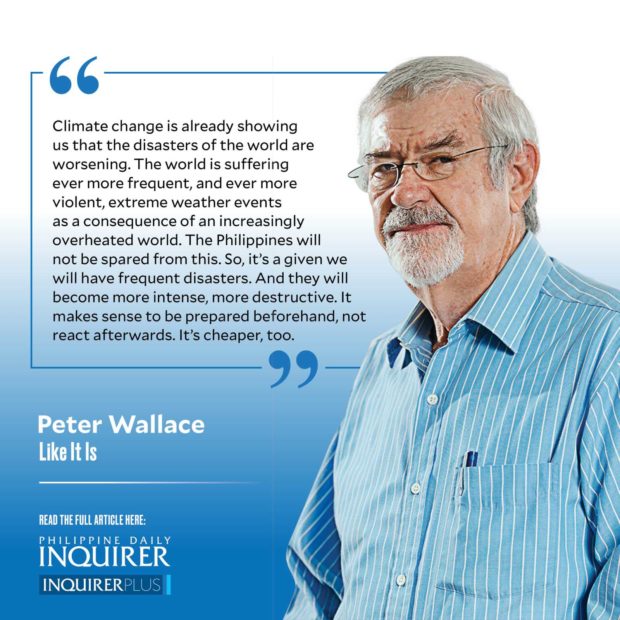Be prepared
The UN Office for the Coordination of Humanitarian Affairs states that the Philippines is visited by an average of 25 typhoons and has 21 active volcanos with regular earthquake threats. Flooding is now a regular occurrence, too. We’re one of the most disaster-prone countries in the world — 4th among 180 nations in the Global Climate Risk Index over a 20-year period (2000-2019).
So you’d think we’d be well prepared to handle these disasters. I’m sure you’ll not be surprised to find out we aren’t.
The President’s State of the Nation Address (Sona) call to Congress to create a Department of Disaster Resilience (DDR) is one that lawmakers should heed before they get lost in campaigning for themselves. The bill was passed on final reading in the House of Representatives last year, but it is still pending at the committee level in the Senate.
Climate change is already showing us that the disasters of the world are worsening. The world is suffering ever more frequent, and ever more violent, extreme weather events as a consequence of an increasingly overheated world. In Sicily, the temperature reached an unlivable 48.8 degrees, the highest on record. The Philippines will not be spared from this. So, it’s a given we will have frequent disasters. And they will become more intense, more destructive. It makes sense to be prepared beforehand, not react afterwards. It’s cheaper, too.
I’m reluctant to recommend more departments. As President Aquino said, “we have too many.” But this one, I think, could be well justified. If Congress doesn’t want to add more departments, get rid of the Department of Agrarian Reform. It has done more harm than good.
The Mandanas ruling of the Supreme Court—in my opinion, an ill-considered one—has channeled more funds to local governments, many of whom don’t have the expertise to honestly disburse them. Part of those funds should be mandated to be used in the proposed new DDR to prepare for calamities. In his Sona, the President called for the establishment of evacuation centers in all provinces, cities, and municipalities. It should be a priority for local budget spending. Other items of equal importance are food and medical and emergency supplies in a protected, regularly maintained location; training of government personnel on what to do in an emergency; and the holding of regular barangay meetings attended by residents to discuss each type of calamity and the correct action to take.
The professionally-led Philippine Atmospheric, Geophysical and Astronomical Services Administration by Dr. Vicente Malano and the Philippine Institute of Volcanology and Seismology by Dr. Renato Solidum Jr., who’ve both done an excellent job, should be better funded so they can buy the latest equipment, hire the best people, and tap into the world systems so we get early warning of impending disaster.
I’m pleased to see that the private sector has recognized this, and has initiated efforts in the field of disaster management. In 2018, the Philippine Disaster Resilience Foundation (PDRF), headed by Rene Meily, inaugurated the world’s first private sector-led national emergency operations center (EOC). Headquartered in Clark, the EOC is a “24/7 self-sufficient operations hub” whose functions include training for disaster preparedness and coordination of relief and response efforts. According to the PDRF, the EOC complements the government’s efforts in disaster management. A new department could work well with it.
Tied in with this, the Department of Public Works and Highways needs to be prepared and its people trained to quickly move in and repair or replace fallen bridges, damaged roads, and destroyed public buildings. The Department of Energy and the local electric co-ops need to be properly equipped and trained to move fast to restore power. As do local water suppliers, hospitals and clinics, fire brigades, and ambulances. All of this needs to be coordinated, managed, and budgeted for. The need for a DDR becomes ever clearer as one considers the wide ramification of what is needed in a disaster-prone country. That department must be properly funded with not only operating funds, but also contingency funds that can be rapidly tapped to restore everything back to normal in a worsening world.
Given long-term climate change with ocean levels rising and typhoons becoming ever more destructive, a DDR assumes even greater importance. Be prepared.





















